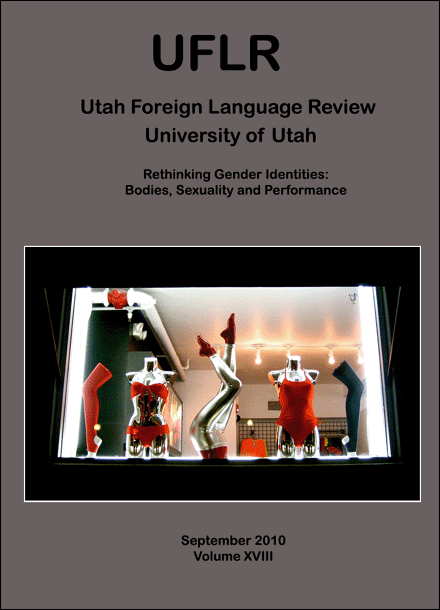Modern Woman’s Counterpoint: the Fluctuating Trope of Colonized Women in North African Colonial Periodicals
Abstract
In the European literary tradition, constructions of African and eastern women have long furnished a malleable, contrapuntal trope through which to negotiate the contours of western civilization.1 Expanding European incursion abroad and the advent of fictionalized travelogues and ethnography rendered the literary trope still more popular, as an increasingly ambiguous frontier between fiction and fact lent an air of vraisemblance, or plausibility, to even the most outlandish constructions. Early 20th-century literature produced by colonial writers in French North Africa both mobilized and embellished the figure of the African/eastern woman for strategic purposes. In her broadly researched study of Algerian documents, Marnia Lazreg argues that the French military staged veil-removal ceremonies so that hexagonal reports on these events would promote public support for colonization as a force emancipating women (150). Despite the contrived nature of these performances as well as the violence perpetrated against Algerian women by the French military, French readers were amenable to the figure of the Algerian woman liberated by the colonizer, prepared by a wealth of literary constructions depicting Muslim women subjugated by tyrannical men.UFLR is released under a Creative Commons Attribution-NoDerivs 3.0 Unported License:
Attribution — You must attribute the work in the manner specified by the author or licensor (but not in any way that suggests that they endorse you or your use of the work).
No Derivative Works — You may not alter, transform, or build upon this work.
For more information on the Creative Commons Attribution-NoDerivs 3.0 Unported License, please visit: http://creativecommons.org/licenses/by-nd/3.0/
UFLR does not retain any copyright to the authors' original work. As per the Creative Commons Attribution-NoDerivs 3.0 Unported License, you may may use portions of the articles published herein with proper attribution as published in UFLR. As UFLR does not retain the copyright to the author's original work, anyone interested in republishing or altering the original work in any way must contact the author or indicated right holder directly for permission.



